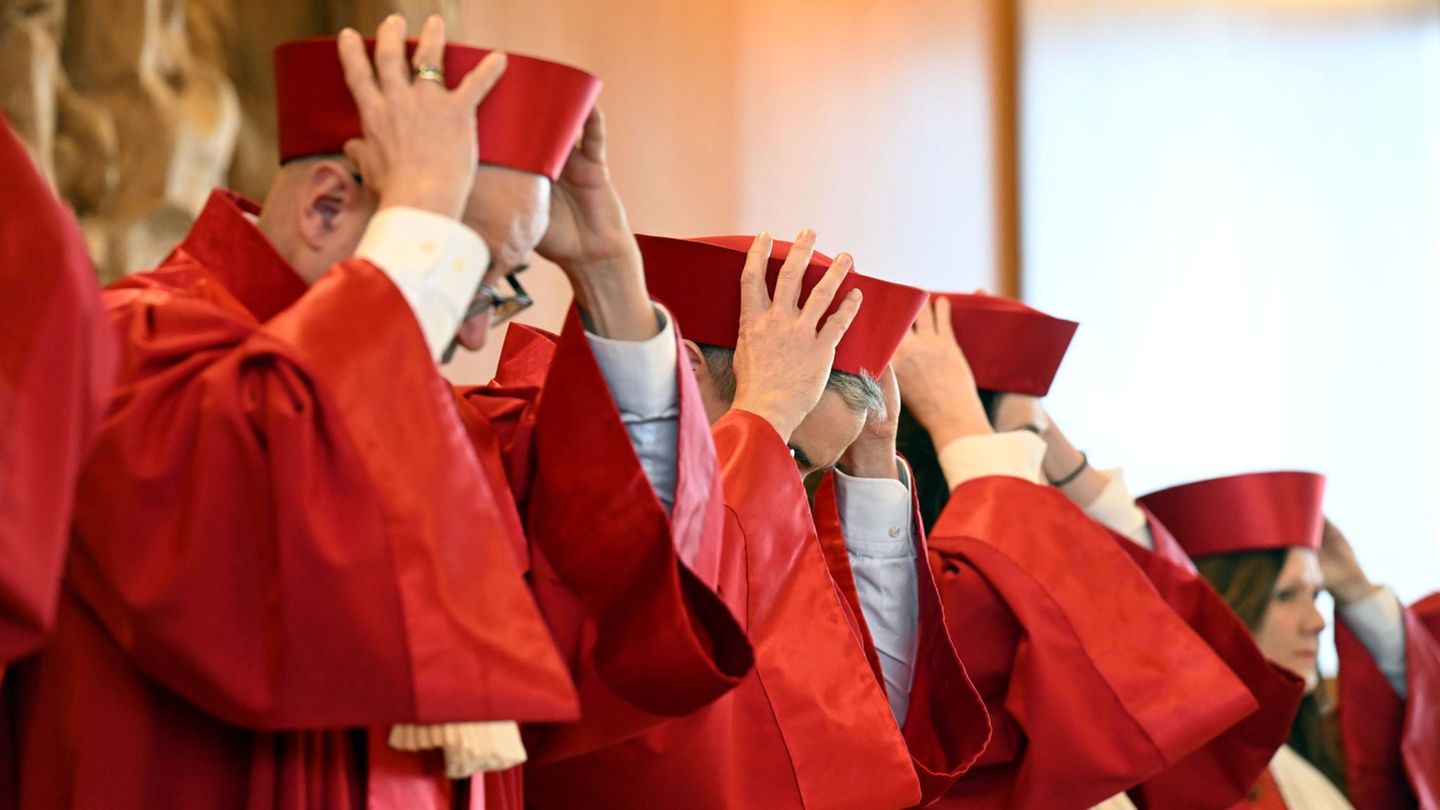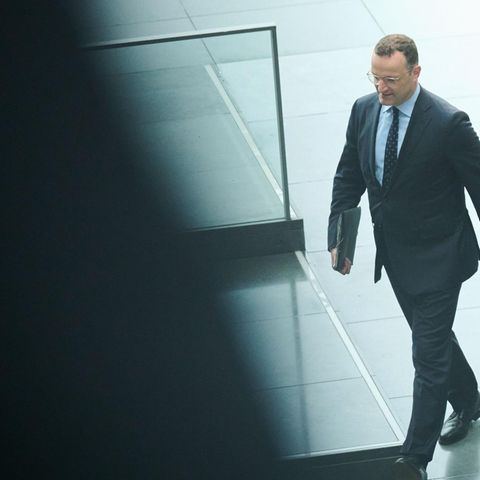Federal Constitutional Court
What is behind the judge poker
Copy the current link
Add to the memorial list
What political groups in the Bundestag agree to the three candidates for Karlsruhe? Black and red is under pressure-the background.
Such an event does not occur every day, already of course. After all, the judges of the Federal Constitutional Court are not elected in a fixed, regular cycle. But what is usually a matter for gourmets is shaking through the political Berlin. What’s going on there?
This is due to the special circumstances of this choice, its possible implications and also controversial personal details in the coalition. Black-red struggles for compromises, the SPD signals in star now a courtesy. Whether in vain or with success, it turns out on Friday. The three problems with the judge poker:
Problem 1: Black and red is dependent on help
On Friday, the Bundestag chooses three new faces in the bright red official costumes, provided everything runs smoothly from the perspective of the Union and the SPD. On Monday evening the election committee already gave the green light and nominated the labor judge Günter Spinner supported by the Union, as well as the legal professors in Frauke Brosius-Gersdorf and Ann-Katrin Kaufhold proposed by the SPD.
Because a two -thirds majority of all MPs present is necessary when voting in the Bundestag, it becomes complicated. Because the CDU/CSU and SPD are dependent on help, even with the Greens, the calculation probably does not work. If all MPs pass their vote, black-red-green were still missing seven votes for the required majority.
If there is hope for a lack of MPs, for example through sick leave, so that the quorum drops. Further support would be more secure – and only left and AfD can be considered. It shouldn’t work without one of the two parties. However, the CDU has excluded any collaboration with you by party convention. At least with a view to the AfD, the SPD can gather behind it.
Problem 2: What if the AfD is right?
And now? The situation appears. “No choice without a conversation, it is very simple,” says left-wing boss Jan van Aken in the direction of the Union. This in turn continues to reject discussions about the judge’s election and hopes that the majority will come about even under the most adverse circumstances.
So the case could occur that the black and red plans will not find a majority. Or contribute AfD votes to the choice of Günter Spinner, which the Union proposed.
The AfD apparently sees potential to put the Christian Democrats under pressure and to act against its own incompatibility. The AfD parliamentary group leadership has recommended its MPs to vote for Union candidate Spinner. This should apparently increase the pressure on the Union in order to advertise the votes of the left, which the AfD could then criticize again. In the end, it will not be determined exactly how the majority came about: the choice is secret.
Problem 3: a controversial personnel
As if that weren’t complicated enough, there is also a need for speech in the coalition. One of the two SPD candidates is still controversial: the lawyer Frauke Brosius-Gersdorf. It is considered to many in the Union as left.
Jens Spahn, the Union faction leader, promoted the election of the black and red personnel package. According to the participants, he had announced a compromise with the SPD in the parliamentary group meeting, apparently to facilitate internal critics the choice of Brosius-Gersdorf. The “Süddeutsche Zeitung” had first reported about it.
Accordingly, the 54-year-old lawyer should become a judge, but not vice president of the court. To the background, roughly shortened: Brosius-Gersdorf would have been set as a vice president with her choice, and moved up to the president’s post in five years.
From the SPD, the SPD contradicts, after all, the Bundestag does not decide on the Vice Presidency, but the Federal Council. However, the Social Democrats signal to their coalition partner.
“All three nominees for the Federal Constitutional Court are outstandingly qualified lawyers and thus technically excellent for Karlsruhe,” says Dirk Wiese the star. He is the first parliamentary managing director of the SPD parliamentary group, the parliamentary group manager, and a member of the election committee, so to speak.
“But the Bundestag does not decide on the question of who will ultimately follow Doris König as Vice President of the Federal Constitutional Court, but the Federal Council.” As a result, there is no pre -festival by the Bundestag. And then Wiese still says: “In our view, Ms. Kaufhold would be a good choice.”
Does the Brosius-Gersdorf now cost the position as vice president? Either way, the question remains in your choice how many deviators will be in the CDU and CSU. If the election fails in the Bundestag, the Federal Council would be entrusted with the occupation of the judges.
The CSU state group leader Alexander Hoffmann warns of such a scenario. “If the choice of this judge package fails in the Bundestag, the opposite of what the critics want threatens,” he said to the German Press Agency. Nobody could answer the question of how the Federal Council would be able to “enforce a single bourgeois-conservative candidate for the constitutional court”. That would be fatal, said Hoffmann, it would mean in his view: “The constitutional court moves to the left, even though the Union won the election.”
If the election goes wrong on Friday, there could be many losers – especially the democratic center. If there is no overall cleaning, i.e. also with the Left Party, the AfD should be happy.
The left faction has already announced that it will support the two SPD candidates after talks with the Social Democrats, said left-wing parliamentary group leader Heidi Reichinnek. It “highly questionable” that the Union does not go: “She accepts that her proposal for the Federal Constitutional Court is only chosen with votes from the right -wing extremist AfD.”
Source: Stern
I have been working in the news industry for over 6 years, first as a reporter and now as an editor. I have covered politics extensively, and my work has appeared in major newspapers and online news outlets around the world. In addition to my writing, I also contribute regularly to 24 Hours World.






